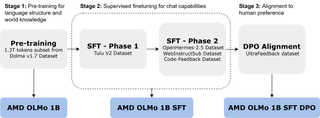
The “Large Fund” has already supplied monetary assist to 2 of China’s main chip producers — Semiconductor Manufacturing Worldwide Company and Hua Hong Semiconductor, in accordance with a Reuters report.
The funding fund can be anticipated to finance the Excessive Bandwidth Reminiscence (HBM) business and different key AI semiconductor fields, as per Chinese language company info service, Qichacha.
Whereas particular targets stay undisclosed, the fund within the third section is predicted to give attention to AI-related semiconductors and manufacturing gear. The fund additionally goals to assist R&D initiatives and help main Chinese language semiconductor firms in transitioning from worldwide to home suppliers for key supplies like chemical substances, industrial gasses, and silicon wafers. This transfer will reduce China’s reliance on international suppliers and probably weaken the effectiveness of future US restrictions.
This transfer comes because the US tightens export controls on superior chips and fabrication instruments to hinder China’s tech developments.
In October 2022, the US applied complete export controls to curb China’s army modernization by limiting entry to superior AI chips that use US know-how. Once more in 2023, the Bureau of Business and Safety up to date these guidelines to deal with loopholes that compromised their effectiveness.
“As we speak’s up to date guidelines will improve the effectiveness of our controls and additional shut off pathways to evade our restrictions. These controls preserve our clear give attention to army purposes and confront the threats to our nationwide safety posed by the PRC Authorities’s military-civil fusion technique,” Secretary of Commerce Gina M. Raimondo stated in an announcement in 2023. “As we implement these restrictions, we are going to maintain working to guard our nationwide safety by limiting entry to crucial applied sciences, vigilantly imposing our guidelines, whereas minimizing any unintended impression on commerce flows.”




